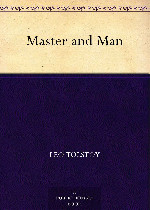
In this short story, a land owner named Vasili Andreevich Brekhunov takes along one of his peasants, Nikita, for a short journey to the house of the owner of a forest. He is impatient and wishes to get to the town more quickly 'for business' (purchasing the forest before other contenders can get there). They find themselves in the middle of a blizzard, but the master in his avarice wishes to press on. They eventually get lost off the road and they try to camp. The master's peasant soon finds himself about to die from hypothermia.

The Kingdom of God Is Within You(神的国) 立即阅读
The Kingdom of God Is Within You (Russian: Царство Божие внутри вас [Tsarstvo Bozhiye vnutri vas]) is a non-fiction book written by Leo Tolstoy. A philosophical treatise, the book was first published in Germany in 1894 after being banned in his home country of Russia. It is the culmination of thirty years of Tolstoy's thinking, and lays out a new organization for society based on a literal Christian interpretation.
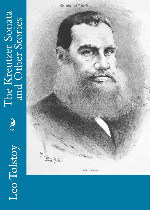
The Kreutzer Sonata and Other Stories(克鲁采奏鸣曲和其他故事) 立即阅读
The Kreutzer Sonata (Russian: Крейцерова соната, Kreitzerova Sonata) is a novella by Leo Tolstoy, named after Beethoven's Kreutzer Sonata. The novella was published in 1889, and was promptly censored by the Russian authorities. The work is an argument for the ideal of sexual abstinence and an in-depth first-person description of jealous rage. The main character, Pozdnyshev, relates the events leading up to his killing his wife: in his analysis, the root causes for the deed were the "animal excesses" and "swinish connection" governing the relation between the sexes.
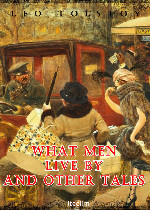
What Men Live By and Other Tales(男人靠什么生活和其他故事) 立即阅读
"What Men Live By" is a short story written by Russian author Leo Tolstoy in 1885. It is one of the short stories included in his collection What Men Live By, and Other Tales, published in 1885. The compilation also included the written pieces "The Three Questions", "The Coffee-House of Surat", and "How Much Land Does a Man Need?".

The Invaders and other Stories(入侵者和其它一些故事) 立即阅读
A fantastic collection of short stories written by the master himself, Leo Tolstoy! Take your mind on a ride with The Invaders and Other Stories, a phenomenal addition to the library of any short story lover!
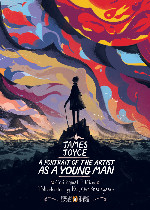
A Portrait of the Artist as a Young Man(一个青年艺术家的画像) 立即阅读
A Portrait of the Artist as a Young Man is the first novel by Irish writer James Joyce. A Künstlerroman in a modernist style, it traces the religious and intellectual awakening of young Stephen Dedalus, a fictional alter ego of Joyce and an allusion to Daedalus, the consummate craftsman of Greek mythology. Stephen questions and rebels against the Catholic and Irish conventions under which he has grown, culminating in his self-exile from Ireland to Europe. The work uses techniques that Joyce developed more fully in Ulysses (1922) and Finnegans Wake (1939).
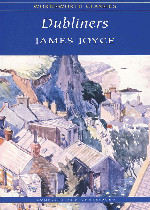
Dubliners is a collection of 15 short stories by James Joyce, an Irish writer. It was his first book and was first published in 1914.The fifteen stories were supposed to describe very well the life of Irish people living in and around Dublin in the early years of the 20th century.The stories in the collection are first told by children, and as the stories continue they deal with the lives of older people. The last story, "The Dead", is the longest and the most famous.
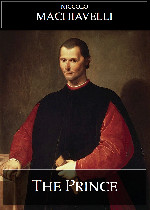
The Prince (Italian: Il Principe [il ˈprintʃipe]) is a 16th-century political treatise by the Italian diplomat and political theorist Niccolò Machiavelli. From correspondence a version appears to have been distributed in 1513, using a Latin title, De Principatibus (Of Principalities). However, the printed version was not published until 1532, five years after Machiavelli's death. This was done with the permission of the Medici pope Clement VII, but "long before then, in fact since the first appearance of The Prince in manuscript, controversy had swirled about his writings".
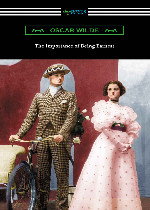
The Importance of Being Earnest(不可儿戏) 立即阅读
The Importance of Being Earnest, A Trivial Comedy for Serious People is a play by Oscar Wilde. First performed on 14 February 1895 at the St James's Theatre in London, it is a farcical comedy in which the protagonists maintain fictitious personæ to escape burdensome social obligations. Working within the social conventions of late Victorian London, the play's major themes are the triviality with which it treats institutions as serious as marriage, and the resulting satire of Victorian ways. Some contemporary reviews praised the play's humour and the culmination of Wilde's artistic career, while others were cautious about its lack of social messages.
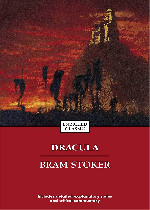
Dracula is an 1897 Gothic horror novel by Irish author Bram Stoker. It introduced Count Dracula, and established many conventions of subsequent vampire fantasy.[1] The novel tells the story of Dracula's attempt to move from Transylvania to England so that he may find new blood and spread the undead curse, and of the battle between Dracula and a small group of men and a woman led by Professor Abraham Van Helsing.Dracula has been assigned to many literary genres including vampire literature, horror fiction, the gothic novel, and invasion literature.